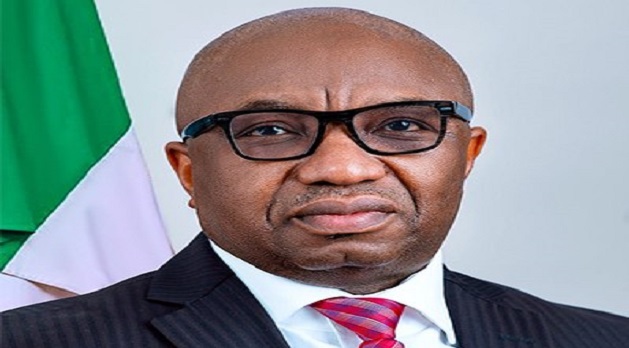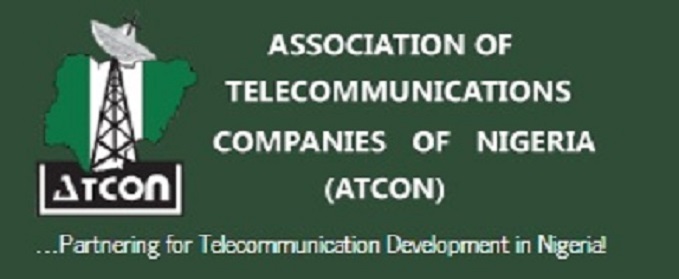Editorial
Telecom Sector under Pressure, Where is the NCC?

The telecom sector is under pressure from a number of sources: interconnection indebtedness; poor quality of services; vandalism; multiple taxation; as well as regulation among others.
For one, the over N20 billion interconnection indebtedness among telecoms operators in the country is already causing a rift and serious threat to healthy competition in the industry.
The controversial huge debt profile and seemingly lack of measures to address the issue is tearing the fabrics of the telecoms sector.
Elsewhere, the worsening quality of telecoms services provisioning had made it difficult to make smooth calls across networks or even within same networks.
Dropped calls; call diversion; weak calls; poor voice clarity; and delay in SMS delivery are common place.
In addition, the sustained attacks by Boko Haram, the Islamic sect on telecommunications’ facilities as well as acts of vandalism pose dangers to investments in the sector.
There are also problems of multiple taxes; and the notoriously unreliable public power supply.
Operators are subjected to multiple taxes from all tiers of governments who see telcos are milk cows which must be milked dry.
Some states, ministries, departments and agencies (MDAs) of government even employ extra-legal means to coerce operators to submit to the payment of illegal taxes
As if that is not enough, telcos have all turned to independent power producers to power their operations while public power supply is standby.
The power supply is like the nerve, in fact, the engine of production.
The near absence of public power supply has a devastating effect on businesses and has forced many smaller telecom companies to close shop because they could no longer remain competitive.
Additionally, the cost of right of way is rising despite the introduction of a new right of way policy.
The new right of way policy was to ease difficulties encountered by operators in the erection of telecom infrastructure but there are still absurd levies by various agencies and state governments on right-of-way approvals .
The biggest problem is that operators have to pay two or three times to local, state and federal governments.
In the midst of the conspiracies threatening to dwarf the achievements of the industry, there are assurances by the Nigerian Communications Commission (NCC).
But despite the assurances, the industry is hanging precariously, only managing with a lot of cosmetics.
For instance, on the issue of the huge interconnect debt; NCC has not stamped its feet on the ground to resolve the impasse.
The new ‘Guidelines for Procedure for Granting of Approval to Disconnect Telecommunication Operators’ is a mere platitude because it will not address the important issue of the sharp difference in revenue sharing ratios between mobile operators and other operators.
The new guidelines will not also address the reluctance of operators to use interconnect houses purposely set up in the first place to rein in interconnect indebtedness.
Also imposing sanctions on operators for failing to meet the Key Performance Indicators (KPIs) will not solve the protracted quality of service challenges.
Instead, the NCC should be saying how it working with relevant stakeholders to address issues hindering operators from investing requisite resources in network expansion.
The Commission should also be telling Nigerians how it is working to encourage operators to invest more in network expansion and the incentives to spread the telecom revolution.
As a matter of fact, the survival or otherwise of the sector depends largely on robust regulation and strong will power of the NCC to remove the roadblocks to investments in the sector.
Editorial
NDPC Boss Nominated for Global Privacy Assembly’s Giovanni Buttarelli Award 2024

Dr Vincent Olatunji, National Commissioner and Chief Executive Officer of Nigeria Data Protection Commission (NDPC), has been nominated for the Giovanni Buttarelli Award 2024. The award through the Global Privacy Assembly recognises an individual’s outstanding leadership and exceptional efforts in fostering international collaboration.

Dr Vincent Olatunji
This nomination highlights Dr Vincent’s commitment to driving innovation, expanding global partnerships, and promoting a collaborative approach within the data privacy and protection ecosystem.
Under the visionary leadership of Dr Vincent, the Data Privacy ecosystem in Nigeria has witnessed a remarkable growth through key milestones such as deepening the knowledge of data protection and privacy in all public and private institutions, judicial recognition of adequacy principle in cross-border data transfer, playing key roles in regional and global data privacy ecosystem, commencement of bilateral cooperation with other jurisdictions, licensing of data protection compliance organisations, commencement of national data protection certification process, among others.
Dr Vincent’s strategic and innovative initiatives has been instrumental in forging strong international partnerships, driving sustainable growth, fostering a culture of collaboration which has not only propelled the NDPC to new heights but also set a benchmark for international cooperation and industry standards.
The Giovanni Buttarelli Award celebrates leaders who have demonstrated exceptional leadership and/or promoted collaboration at a regional or international level in the field of data privacy and protection.
Nominees are evaluated based on their contributions to projects that has led to the development of innovative concepts or practices, which have significantly impacted the thinking in the international data protection and privacy community, partnerships, and initiatives that enhance global cooperation and development.
In his response to his nomination, Dr Vincent Olatunji expressed his gratitude and emphasised on the importance of collective effort in achieving global progress. “I am deeply honored to be nominated for the Giovanni Buttarelli Award 2024” said Dr Vincent.
“This recognition is a testament to the hard work and dedication of our entire team at NDPC. It underscores the power of collaboration and the remarkable outcomes we can achieve when we work together across borders.
“I am excited to continue our journey, driving innovation and fostering partnerships that make a positive impact globally,” he said.
Editorial
Telcos Ask NCC to Allow Them Hike Tariff

Telecoms operators including MTN, Airtel and Globacom have pushed for cost-reflective tariff in view of extant economic realities.

This was contained in a statement jointly released by the Association of Licensed Telecom Operators of Nigeria (ALTON) and the Association of Telecommunication Companies of Nigeria (ATCON) on Thursday.
The statement was co-signed by Gbenga Adebayo; chairman, ALTON and Tony Emoekpere, president, ATCON.
The telcos called upon the government to take decisive action in addressing the numerous challenges confronting the telecommunications industry.
The telcos said telecommunications infrastructure development requires substantial investments in network expansion, maintenance, and technology upgrades.
“Despite the adverse economic headwinds, the telecommunications industry remains the only industry yet to review its general service pricing framework upward in the last (11) years, primarily due to regulatory constraints.
“For a fully liberalized and deregulated sector, the current price control mechanism, which is not aligned with economic realities, threatens the industry’s sustainability and can erode investors’ confidence.
“ATCON and ALTON call upon the government to facilitate a constructive dialogue with industry stakeholders to address pricing challenges and establish a framework that balances consumers’ affordability with operators’ financial viability,” the statement partly read.
Regarding the Nigerian Communications Commission (NCC), the telcos also said regulatory neutrality and independence are crucial to ensuring a thriving telecommunications sector.
“Statutory provisions lend credence to this notion, as a lack of an impartial regulator will lead to a failure to maintain public confidence in the objectivity and independence of its decisions,” the statement added.
Editorial
FG Reiterates Commitment to Achieving 17 SDGs

The federal government has reiterated its commitment to achieving all the 17 Sustainable Development Goals (SDGs) to promote economic growth and eliminate poverty in Nigeria.

The Minister of Special Duties and Intergovernmental Affairs, Senator George Akume, gave the assurance at a news conference on Tuesday, in Abuja ahead of the “Inaugural Partnership Economy Summit”, scheduled for September 14 and 15.
According to Akume, the primary purpose of the summit is to diversify the economy, promote rural growth, as well as generate sustainable jobs for the youths.
Achieving this, the minister emphasised on partnership with other stakeholders as it was the responsibility of his ministry to achieve the aim of its mission and the creation.
“The framework for the upcoming summit, guided by the principles of Public Social Private Partnership (PSPP) is being designed to develop, promote a multi-Iayered collaborative socio-economic platform for the government, the business sector as well as the civil society.
“In order to achieve this, President Muhammadu Buhari established the ministry with the mandate to develop and implement policies, programmes and projects for the effective and efficient delivery of the gains of Economic Growth and Recovery Plan,” Akume said.
He said the ministry was also charged with the mandate of collaborating with the private sector to create employment for a large number of Nigerian youths, adding that it is also meant to implement a strategy towards the realisation of the president’s June 12 promise to take 100 million Nigerians out of poverty in 10 years.
“Nigeria is among the countries in the UN that signed a pact to implement the SDGs by 2030, in the words of Ban Ki-Moon, former Secretary-General of UN in 2016.
“Nigeria is not left out in its plan towards achieving the SDGs, and how far has Nigeria gone to achieving the 806 goals is part of the questions that the upcoming summit seeks to address,” Akume explained.
He stated that to tackle the issue of poverty and unemployment, the ministry is in partnership with a number of stakeholders, including the Ministry of Industry, Trade and Investment; and Small and Medium Enterprises Development Agency of Nigeria.
Others are Raw Materials Research and Development Council, National Orientation Agency, Association of Local Government of Nigeria and SDGs Nigeria as well as MYK Psymmons Solutions Limited to come up with achievable solutions to all the challenges.

 E-Financial3 days ago
E-Financial3 days agoPaystack Expands Beyond Payments into Banking

 E-Financial3 days ago
E-Financial3 days agoSEC Partners Police in Nationwide Crackdown on Ponzi Schemes, Crypto Frauds

 General News3 days ago
General News3 days agoEFCC to Use Space Technology to Boost Asset Tracking, Investigations

 E-Business3 days ago
E-Business3 days agoNigeria Targeted with 4,622 Cyber-attacks Per Week in December 2025

 E-Financial3 days ago
E-Financial3 days agoFG Halts Tax Guidelines Amid Uncertainty Over Final Laws – Oyedele

 News3 days ago
News3 days agoFG Directs Banks, Fintechs to Remit VAT on Service Fees

 E-Financial3 days ago
E-Financial3 days agoPaystack Buys Microfinance Bank, Enters Nigeria Banking Arena

 General News3 days ago
General News3 days agoHow to Stay Safe Online During Sales Periods















